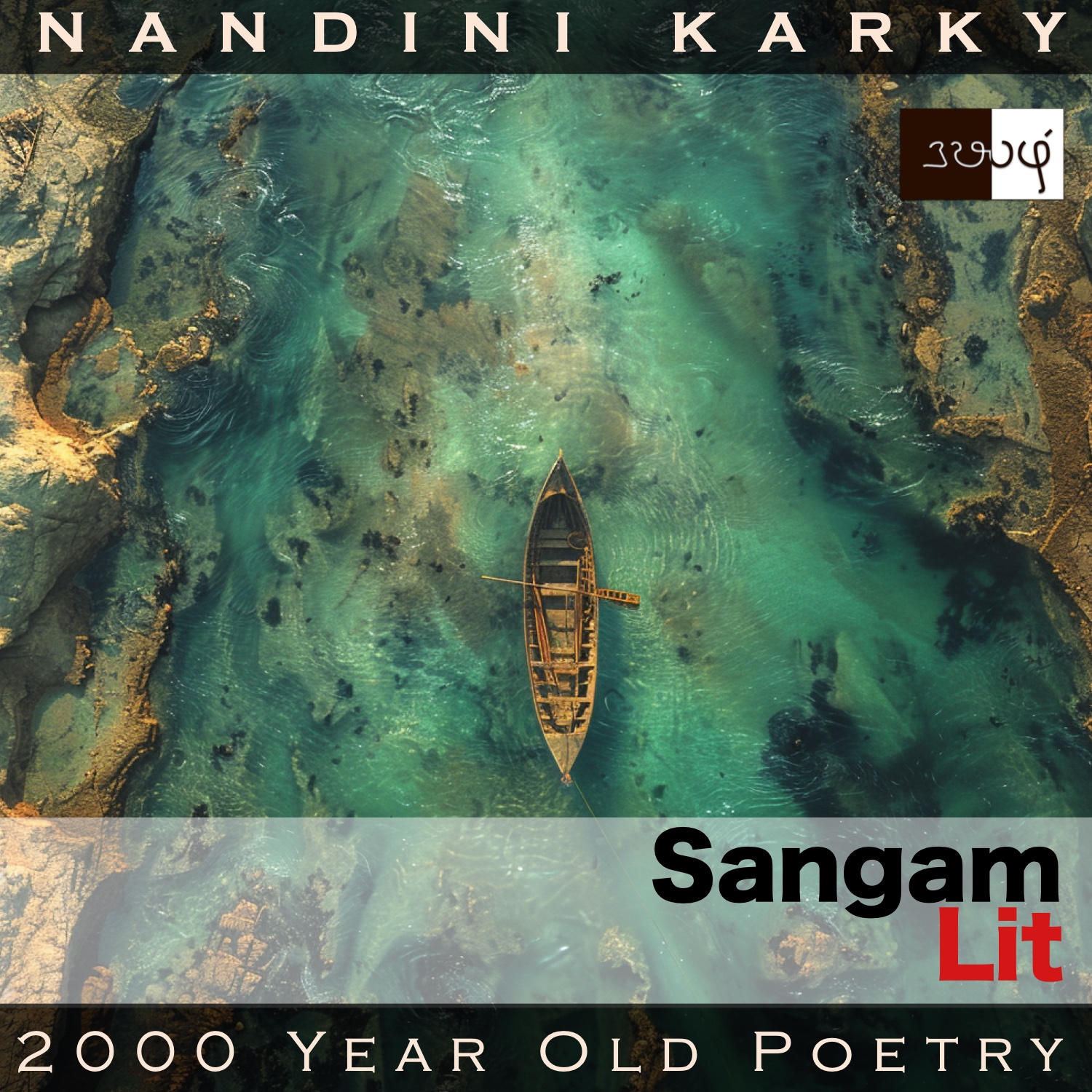Podcast: Play in new window | Download
Subscribe: Apple Podcasts | Spotify | Amazon Music | Android | iHeartRadio | TuneIn | RSS | More
In this episode, we perceive the impermanence of wealth and achievement, as depicted in Sangam Literary work, Puranaanooru 357, penned by the poet Piramanaar. Set in the category of ‘Kaanji Thinai’ or ‘Defence’, the verse talks about the only thing that will aid someone in their afterlife.

குன்று தலைமணந்த மலை பிணித்து யாத்த மண்,
பொதுமை சுட்டிய மூவர் உலகமும்,
பொதுமை இன்றி ஆண்டிசினோர்க்கும்,
மாண்ட அன்றே, யாண்டுகள்; துணையே
வைத்தது அன்றே வெறுக்கை; வித்தும்
அறவினையன்றே; விழுத்துணை அத்துணைப்
புணை கைவிட்டோர்க்கு அரிதே, துணை அழத்
தொக்கு உயிர் வௌவும்காலை,
இக்கரை நின்று இவர்ந்து உக்கரை கொளலே.
We continue to journey on in the river of mortality. The poet’s words can be translated as follows:
“In this world, where the earth binds itself to its mountains, hills and peaks, this land has been split commonly and ruled by the three. Even when there came a few, who did not respect that commonality, their years too have perished; All the wealth they earned accompanied them not; The only true companions are acts of virtue. Those who let go of this raft will find it hard during that time, when, as their beloved cries, and as their life is seized, to traverse from this shore and attain the other shore!”
Let’s explore the nuances. The poet starts by talking about this world where there’s an inseparable bond between the earth and its mountains, and then focuses on this Tamil land, which is considered common between the three rulers, and they are the Chera, Chola and Pandya kings. From this, we understand that ancient Tamils recognised the existence of neighbouring kingdoms, and did not want to conquer it all, as we have heard of so many other ancient rulers. This acceptance of the other perhaps explains why the south of this region remained unconquered for the most part of history. Learning to live in peace with one’s neighbours is the crucial step in enabling safety and prosperity in one’s own domain- something true of all domains from the small circle of individuals to countries entire.
Reverting back, here we find the poet now talking about the exception of a few who refused to accept the commonality of rule and went on to invade other regions. Even those men of ambition are dead now, the poet declares, and the wealth they obtained never accompanied them to the other world. This is the core philosophy of so many religions and regions of human life that ‘When we die, we take nothing along’, and that’s the very thing this ancient poet remarks. He says however there is one thing that is a true companion to those, who face the moment of death, and that is all the good they have done in this life. That is the only raft that can make them sail from this shore of life to the afterlife, the poet concludes. A verse which stresses strongly on the permanence of death and that the only way to navigate this life is by sowing seeds of virtue and generosity, so that in some small way, we can conquer that unconquerable death!




Share your thoughts...